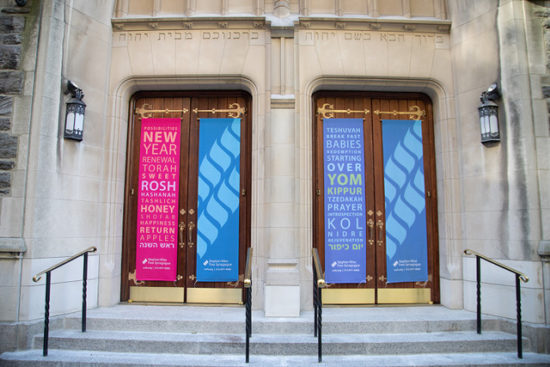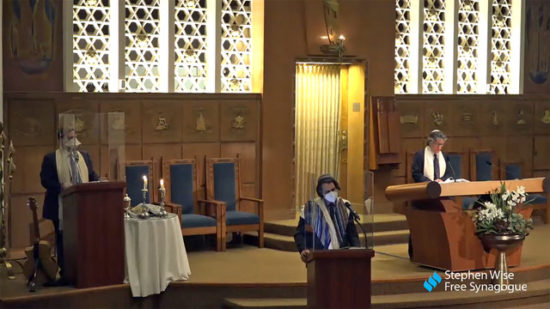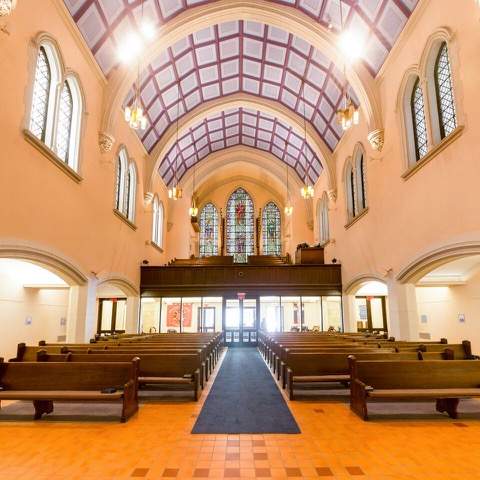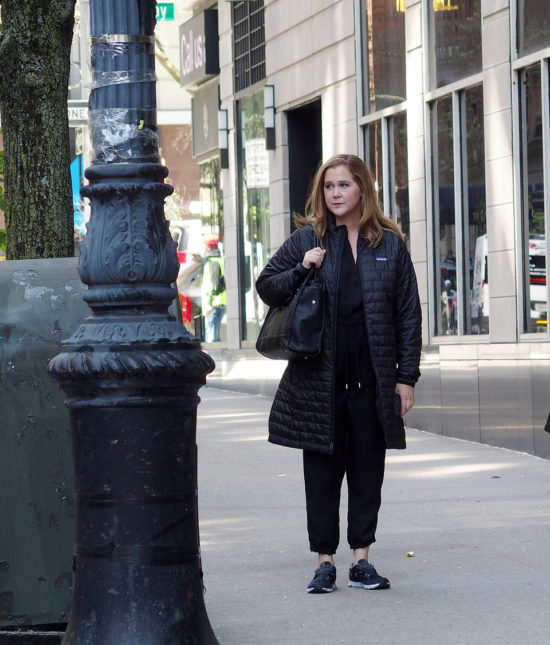
By Lisa Kava
As we move closer to post-pandemic life, Upper West Side religious institutions are busy making plans to reopen for in-person worship and events, with COVID-19 safety precautions in place. In fact, some have already been open for months.
What do in-person religious services and events on the Upper West Side look like in the spring of 2021? There are variations in how different religious institutions are handling things; some but not all are related to facility size. All institutions WSR contacted are requiring advance reservations, health questionnaires, physical distancing, temperature checks, and mask wearing for in-person worship. Some are requiring that attendees be two weeks post vaccination or have a negative COVID test within a few days of attendance.

Stephen Wise Free Synagogue, at 30 West 68th Street, between Central Park West and Columbus, has been open for in-person services, including b’nai mitzvah services, since August 28, 2020, according to Rabbi Ammiel Hirsch. The synagogue allows a maximum of 150 attendees in the sanctuary, which normally seats 900. So far, SWFS has not been requiring proof of vaccination, but that may change, said Rabbi Hirsch, who noted there have been no cases of COVID-19 transmission linked to the synagogue. “Reopening in time for the High Holy Days took a tremendous amount of planning and caution. Our synagogue engaged experts and consultants to advise us on all aspects of reopening, and we had to continuously update our protocols to keep up with the science,” said Rabbi Hirsch. “Not only did we consider physical well-being, but also the emotional toll of the pandemic: the stress on our congregants who live alone; the children whose lives were upended and who lost months of learning; the b’nai mitzvah students and their families, whose ceremonies were delayed.”

The Society for Advancement of Judaism, at 15 West 86th between Central Park West and Columbus, is smaller and has a more conservative approach. The synagogue plans to reopen for Shabbat mornings on three specific dates only- May 1st, 8th and May 15th. This reopening will be considered a trial, explained Rabbi Lauren Grabelle Herrmann (who goes by Rabbi Lauren,) and limited to 15 attendees. All must be full vaccinated two weeks beyond their final dose. The maximum capacity at SAJ is normally 270, Rabbi Lauren told WSR. “We could hold 45 but have chosen to be even more conservative, cutting that number down to 15. We have really embraced the online synagogue community, it has worked well for our members. Not everybody is ready to come back into the building. At home they can sing. They can be without masks,” she said. “We are trying to do this gradually. People haven’t been around crowds. We want to be overly cautious.” SAJ has been holding in-person b’nai mitzvah with a cap of 15 guests since September.
The Redeemer Presbyterian Church, at 150 West 83rd Street between Amsterdam and Columbus, reopened in February for in-person worship according to Reverend Andrew Field, Executive Pastor. The church is allowing a maximum of 150 attendees, “which is far below the state allowed max for our space,” said Field. The event space at The Redeemer Presbyterian Church recently reopened, Field told West Side Rag. “We are eager to host the many weddings, bar mitzvahs, arts events, and community gatherings that we used to do pre-Covid,” Field said. Proof of vaccination or negative COVID test is required for event attendees, but not required for in-person Sunday worship. “We are socially distancing and masking at worship in a way that cannot happen at an event,” Field explained.

Rutgers Presbyterian Church, on West 73rd Street between West End and Broadway, reopened briefly for worship leadership in November, but almost immediately closed when the pandemic worsened, according to Bob Shelton, chairperson of the church’s worship committee. Shelton is also a member of the team strategizing about leading the congregation back to in-person worship. “We are proposing May 23rd to return to in-person worship with a maximum of 50 attendees.” Shelton told West Side Rag in a phone interview. Normal capacity is 225. “The greatest challenge to reopening is achieving a consensus of the group to create a comfortable and safe worship that is in accord with our mission statement and welcoming of all,” said Shelton. “I am anticipating that when people return they are going to be so happy that it will be a wonderful experience to see their friends and to be doing something as a group. I think everyone will be respectful of rules.” The worship committee will propose their plan to congregation leaders at a meeting on May 11th.
B’nai Jeshurun, on 257 West 88th Street between Broadway and West End, reopened on April 23rd for in-person Shabbat services with a limit of 80 attendees, according to Executive Director, Colin A. Weil. In person attendees who are seated on the main level of the sanctuary must be fully vaccinated and be two weeks past their final dose or have a negative Covid test within a few days of attending services.
BJ has been holding “in person events such as B’nai Mitzvahs, weddings and other lifecycle moments with very small groups of guests” since the fall, Weil said. The biggest challenge to reopening safely is “managing the tension between the desires and expectations of the community (which are widely varied) with not just what is possible but what is advisable given all the variables,” Weil wrote in an email to West Side Rag.
While the details of return to in-person worship differ from one another, it is clear that leaders of Upper West Side religious institutions have planned this return with thought and care. Hopefully all who have missed attending in-person services can find an option that feels comfortable and safe.








Quakers have been meeting both on Zoom and in person in the tower of Riverside Church at 11:00AM on Sundays. If you would like to know more write to morningsidequakermeeting@gmail.com
Three Jewish places, one Protestant mentioned. Why have the Catholics been left out?
Whatcha got for non-believers?
Nothin’ but hellfire and damnation.